These Nunavik kids wrote and recorded their own song thanks to a travelling music program
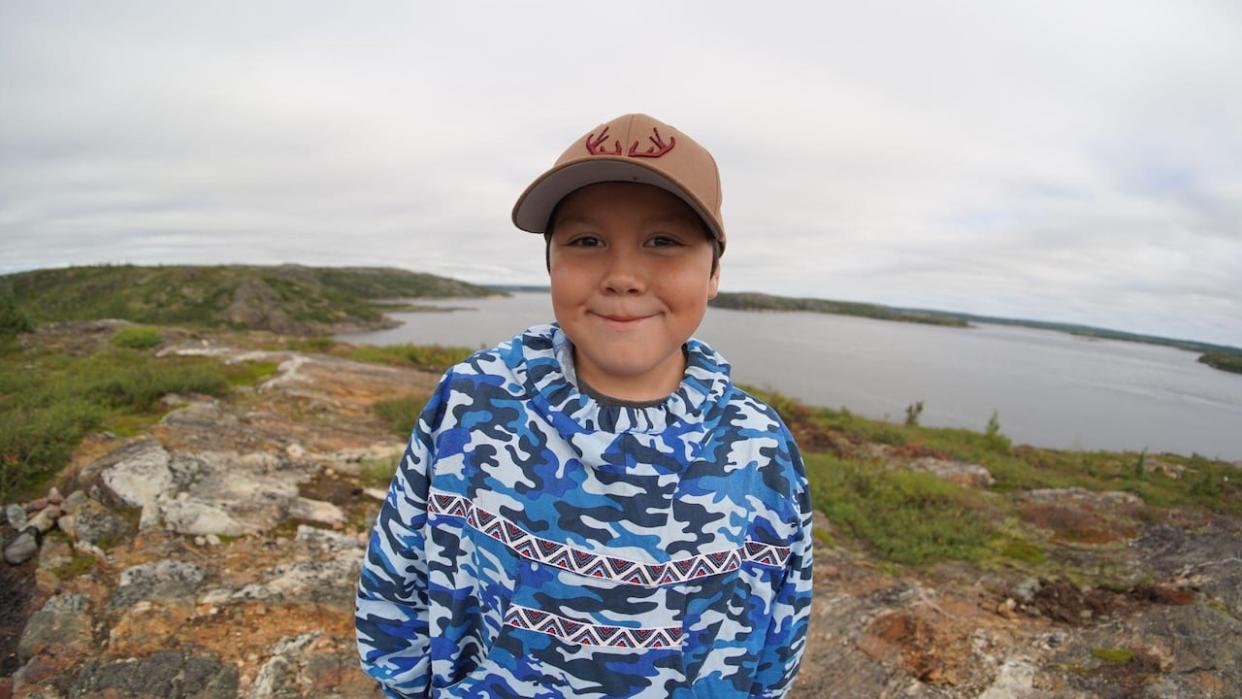
Kim Wapachee-McDougall was brought to tears as she listened to a song in Puvirnituq, Que. this August.
She played it over and over again.
"Parents drinking bottles, but we are drinking power," were among the lyrics that made the videographer most emotional.
They were written by children as part of a project run by a Montreal-based program, N'we Jinan.
Wapachee-McDougall was part of the team that travelled north to Kuujjuaq, Puvirnituq and Quaqtaq this summer, working with students to pull lyrics and beats into a song and giving youth the chance to tell their stories through music and a corresponding music video.
Three songs were released through SoundCloud and a video for one of the songs, We Love Each Other, was shared on YouTube. Two other music videos are set to be released in the coming weeks. They tell stories of perseverance, family, generational trauma and the realities of living in the north.
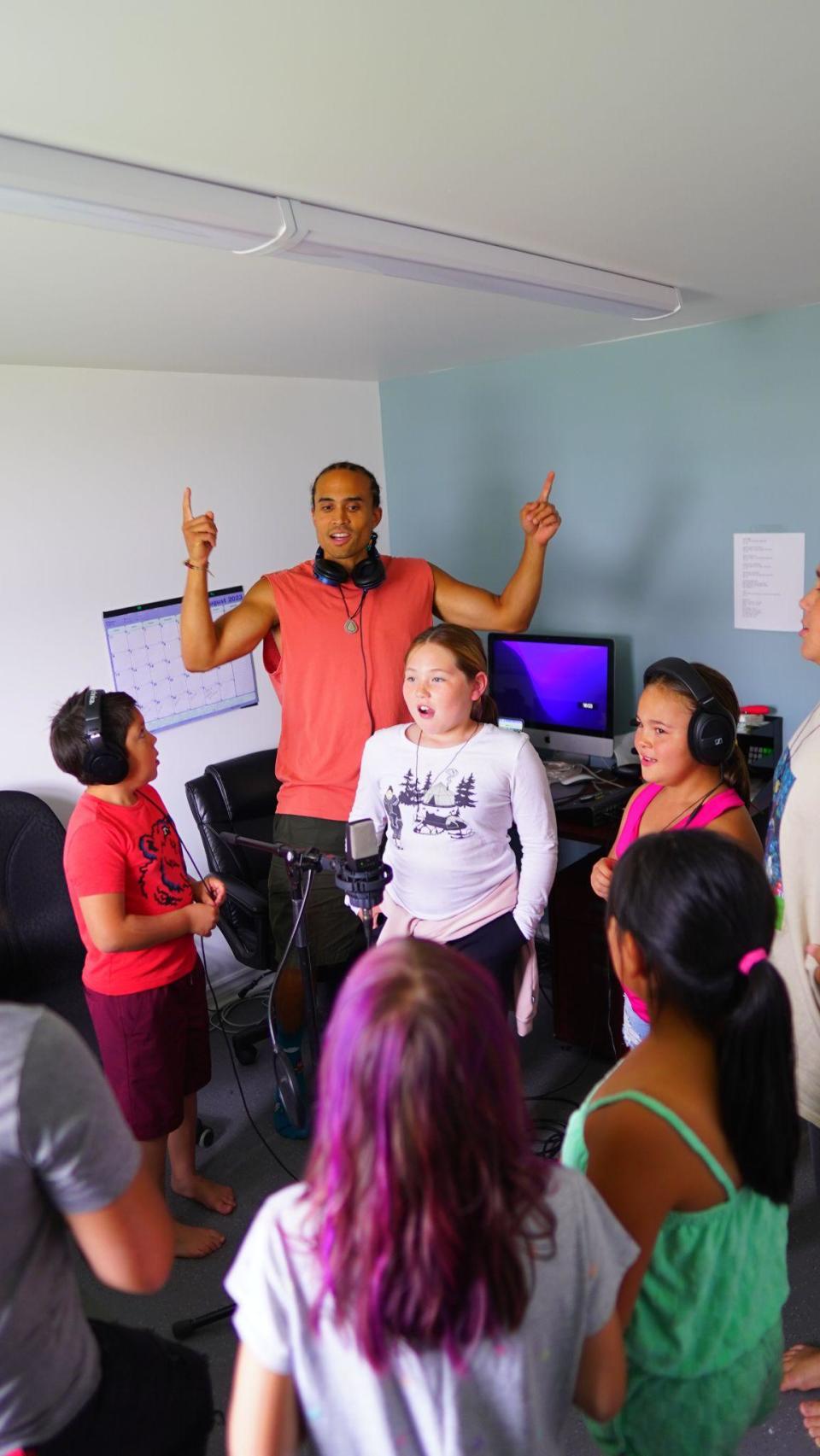
Producer Milan André Boronell works with children in Kuujjuaq, who were the first to receive the experience of recording a song with specialized audio equipment. Organizers say these types of programs are often lacking in isolated communities. (Kim Wapachee-McDougall)
"The words that they wrote … Sometimes it speaks so true to my own story where I'll be like 'I wish I heard this when I was growing up,'" said Wapachee-McDougall, who is Cree from Mistissini and Algonquin from Kitigan Zibi.
"It was good to see these kids writing this all down. Like processing these things, at least in their own way."
About eight years ago, Wapachee-McDougall participated in the program too in Mistissini.
She was on the cusp of school to study film and broadcasting when N'we Jinan visited when it was still just a pilot project. In August, it was the project's first time in Nunavik.
WATCH | N'we Jinan music video We Love Each Other:
Nunavik trips planned following wildfires out west
Originally, N'we Jinan wasn't supposed to visit three Nunavik communities, said Alyssa Carpenter, project director of the Western Arctic Youth Collective, the organization that hired N'we Jinan and organized the Nunavik trip.
Carpenter, who is Inuvialuit, Gwich'in and Dene and originally from the Northwest Territories, now lives in Yukon where she runs the youth collective.
"The trip in Nunavik was an adaptation. We adapted because we were actually supposed to go with N'we Jinan to the Northwest Territories, but the fire evacuation had us pivot a little bit. So we just kept the team (in Kuujjuaq) and picked up two more communities," said Carpenter.
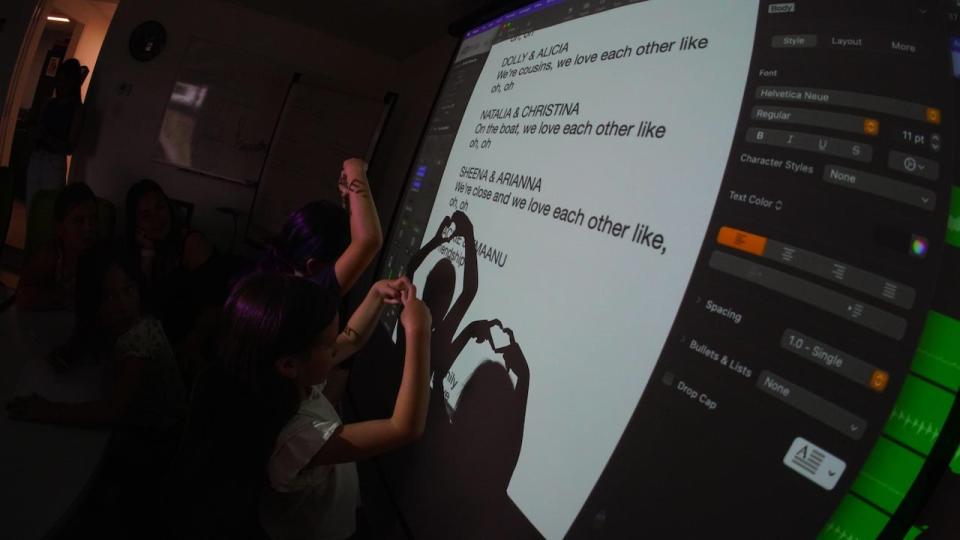
Kids in Kuujjuaq wrote and recorded a song titled We Love Each Other. (Kim Wapachee-McDougall)
Song: an outlet for loss, perseverance
The final songs, Inutuungnginavit (You're Not Alone) created by youth from Puvirnituq, We Love Each Other in Kuujjuaq and Shine Bright in Quaqtaq, revolve around themes of perseverance, love and loss.
Carpenter says the team reminded students that music was a way of to express their feelings.
"A lot of them felt alone or isolated or scared … of what they see and witness … Some of them talked about how they've lost friends to suicide or to alcohol and drugs," said Carpenter.
"But a lot of them were just really sharing (how) they wanted messages of staying strong and reminding people they're not alone."
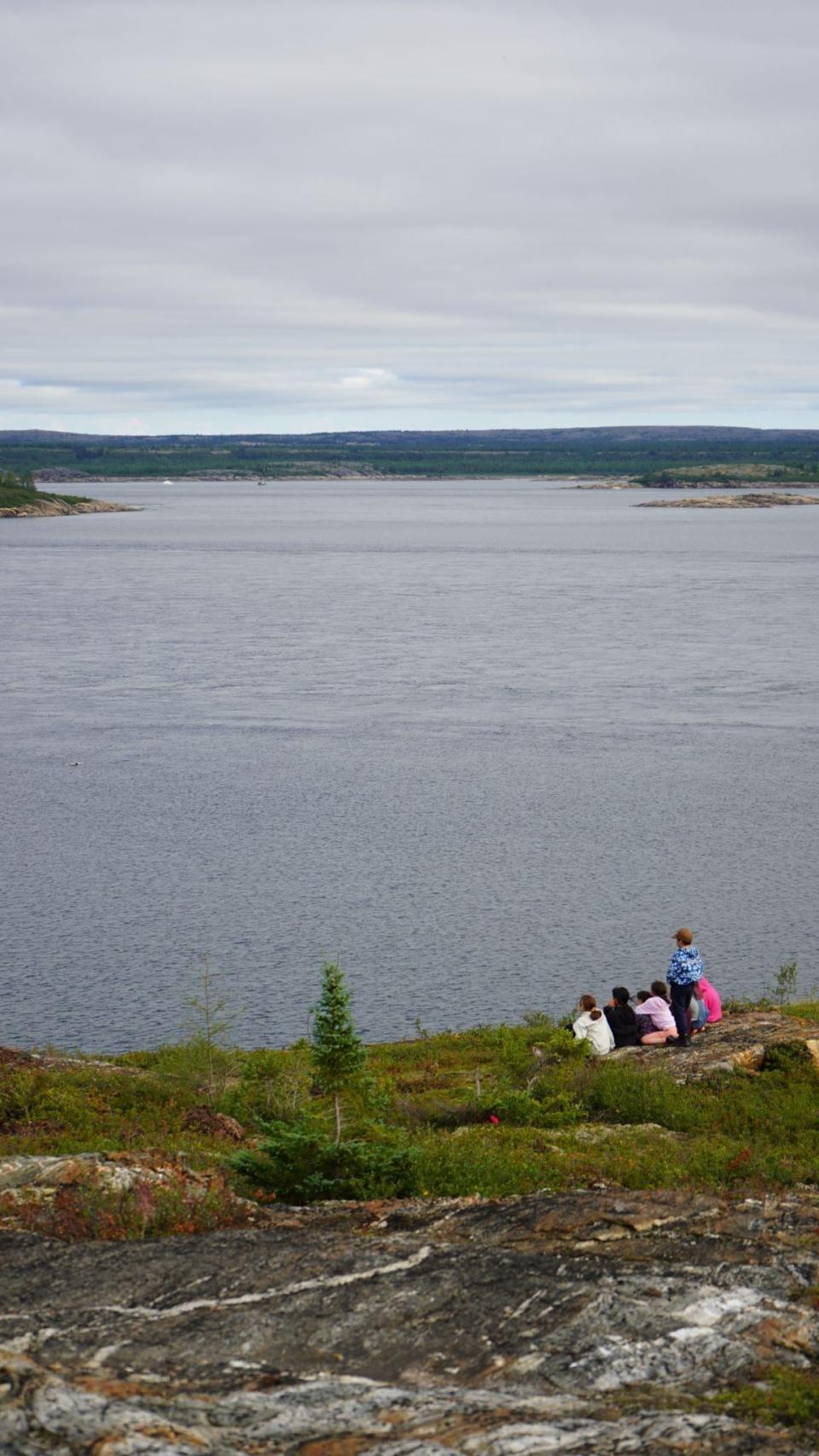
In Kuujjuaq the team that made the music video filmed around town. (Kim Wapachee-McDougall)
The day the team arrived in the first community of Kuujjuaq, Carpenter notes they were greeted with terrible news.
"There was a suicide of a young man and our team right away, we're like 'We're going to give these kids something really good,'" said Carpenter.
She says they were working with a particularly young group of kids, between the ages of six and 11.
"It is tricky," said Carpenter. "You just roll with what they're sharing and a lot of play, a lot of like, really gentle distractions."
Carpenter says she was able to connect with students on a personal level, sharing how her brother died by suicide just last year.
"They were curious about that. I'm open to talking about it. And I just kept going and they kept asking questions, right? So I would give like parents or their caregiver, like 'hey, a heads up, we had this conversation,'" said Carpenter.
"It's giving them an outlet to relate to people who've been through what they've been through."
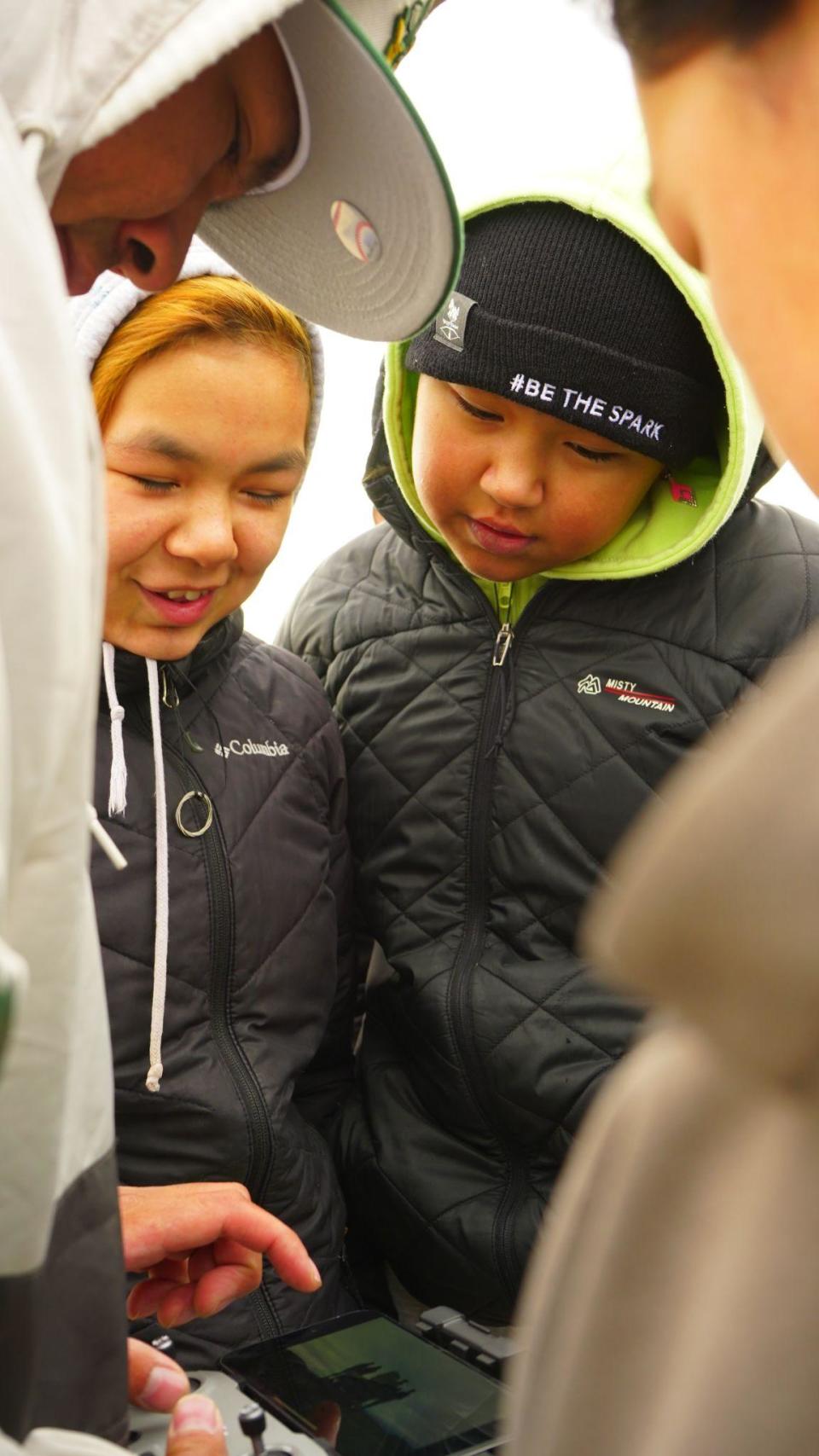
Kids in Quaqtaq recorded and filmed the song Shine Bright with the help of the N'we Jinan team. (Kim Wapachee-McDougall)
Challenges to accessing music programming in north
There's a major gap in music programming in isolated Indigenous communities, said David Hodges, director of music programming at inPath — the organization that founded N'we Jinan.
"They had all of this talent but they didn't have any programs to really nurture any of that," said Hodges.
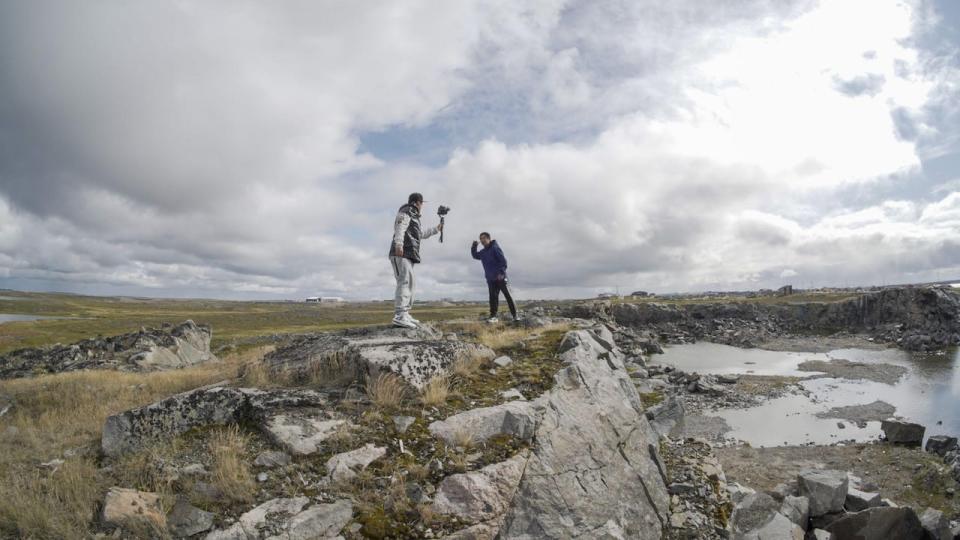
Film crews made YouTube videos for each of the songs. They will all premier on YouTube. (Kim Wapachee-McDougall)
He says he toured several communities, meeting kids who rarely have the same opportunities to explore music professionally.
"I ended up just meeting incredible amounts of talent that was just sitting there," said Hodges.
"A lot of them had not really felt like they were ever given an opportunity to be able to do something as unique as (this) … In the major cities, it's something that we take for granted."
Student said team was 'gift from God'
Carpenter says travelling to and around Nunavik is expensive and the team is hoping Indigenous Services Canada renews their support for future trips.
The reaction from young people they visited is evidence to her that the need is real.
"One of (the kids) was like, 'This is like my dream and you're here.' And we're like, 'Oh my God, take advantage'… I think it's something they'll remember for probably most of their life.'"
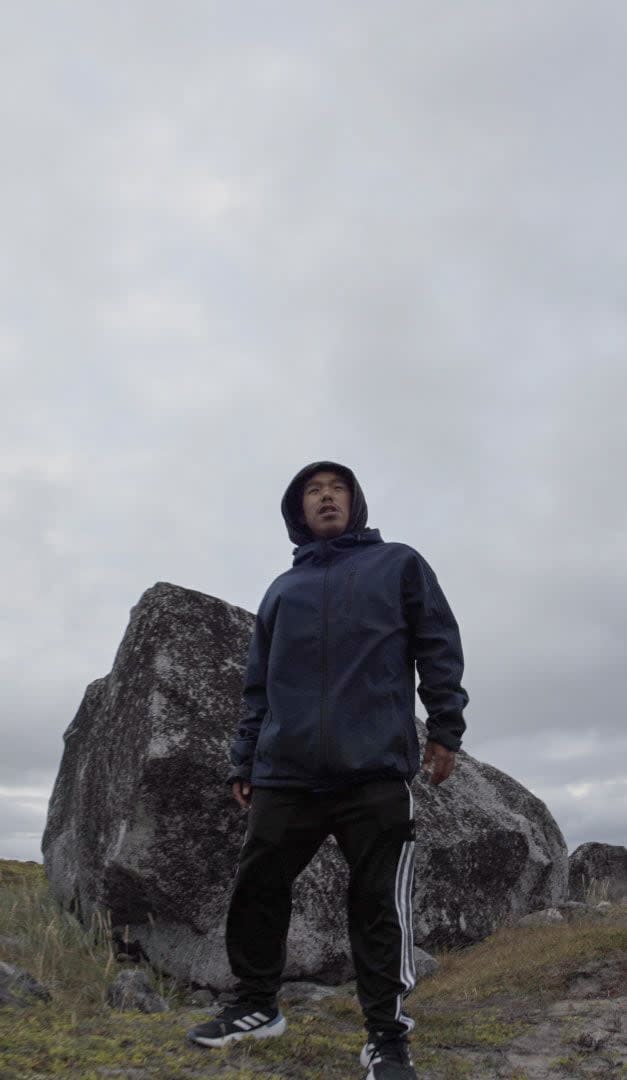
Lucassie in Purvirnituq has been rapping for years. (Kim Wapachee-McDougall)
When they were in Puvirnituq, Carpenter says there was one student, 16-year-old Lucassie, who said music was his dream. He was already freestyling and had been rapping in Inuktitut for years.
"As soon as we came he told us he wouldn't write the lyrics until he heard the song and he recorded it in like one take," said Carpenter.
"That makes everything worth it. Like all the stress and the bit of the chaos and our adapting of our original plans."
As the team got ready to leave the community, Wapachee-McDougall says Lucassie took some of the crew aside.
At first, they were puzzled since none of them speak Inuktitut, but when someone stepped in to translate, they were moved.
"He just kept repeating … 'You're a gift from God. You're a gift from God,'" said Wapachee-McDougall.
"It felt like we were meant to be there."


